On March 13th, Professor Michael Karin, a renowned molecular biologist and a fellow of the National Academy of Sciences and the National Academy of Medicine in the United States, and Professor Michael Snyder, a leading expert in the field of genomics and a fellow of the American Association for the Advancement of Science, were invited as guest speakers for the 208th Master Lecture at Shanghai Jiao Tong University School of Medicine. They respectively delivered fascinating presentations titled "Oxidized Mitochondrial DNA: Unique Molecular Characteristics of Tissue Damage Recognized by Plasmacytoid Dendritic Cells Inducing Antibody-Mediated Autoimmunity" and "Disrupting Healthcare Management with Deep Data and Remote Monitoring" at the lecture hall on the second floor of the Yide Building.
Guests attending the master lecture included Academician Fan Xianqun, Vice President of Shanghai Jiao Tong University and Dean of the School of Medicine, Vice Dean Zheng Junke, and Professor Su Bing, Director of the Shanghai Institute of Immunology at Shanghai Jiao Tong University School of Medicine. Over two hundred faculty and students attentively listened to the brilliant presentations by the two masters.
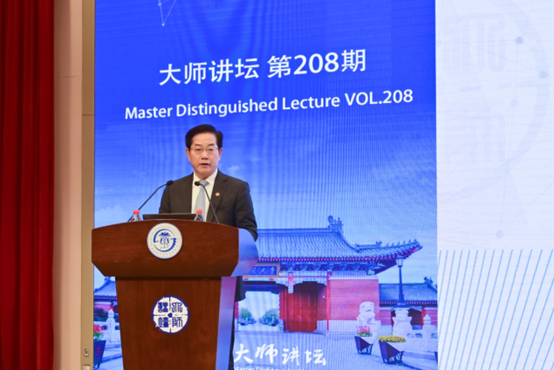
Fan Xianqun warmly welcomed and sincerely thanked the two experts for their presence, and introduced the outstanding contributions of each scientist in the fields of NFκB and MAPK signaling as well as cutting-edge genomic technology development. He earnestly hoped that students would seek wisdom from the masters, actively broaden their academic horizons, explore uncharted territories, and ask questions that predecessors had not asked before.

During his presentation, Academician Michael Karin addressed the scientific question of how autoantibodies against mitochondrial DNA are produced in autoimmune diseases such as lupus erythematosus. Starting from the induction of central reactions and autoantibody production by multiple injections of aluminum adjuvants, he found that oxidized mitochondrial DNA released from mitochondria into the cytoplasm through the mitochondrial permeability transition pore (mPTP) and VDAC channels activates the NLRP3 inflammasome, leading to the production of IL-1β and IL-21, which further stimulate plasmacytoid dendritic cells to mediate the production of follicular T helper cells, thereby exacerbating autoantibody generation. The presentation provided a detailed and in-depth understanding of the mechanisms underlying the generation of autoantibodies in autoimmune diseases, as well as the key molecular activation pathways and cell types influencing autoantibody production. Academician Michael Karin pointed out that future immunological research should shift attention from tumor immunity to understanding autoimmune diseases, thus deepening our understanding of the interaction between the immune system and autoimmunity.
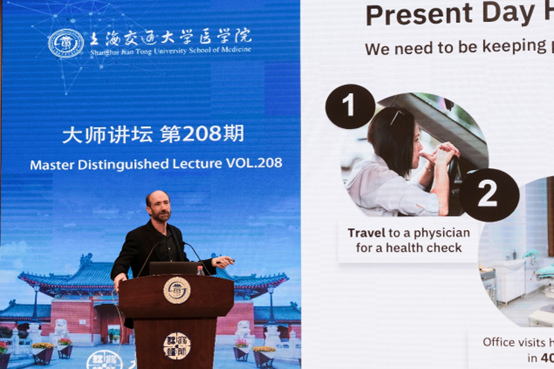
Professor Michael Snyder, on the other hand, introduced the latest developments in the field of personalized health from the perspectives of genomics and portable health monitoring devices. Unlike the detailed mechanistic exploration by Professor Michael Karin, his research focuses more on early diagnosis of diseases and real-time health monitoring. Currently, by combining genetic mutation monitoring with other clinical evidence, specific disease occurrences can be accurately detected. Monitoring methods based on changes in heart rate and blood sugar levels can also successfully detect newly acquired infections, achieving a dual advancement in research and industry in the field of personalized health.
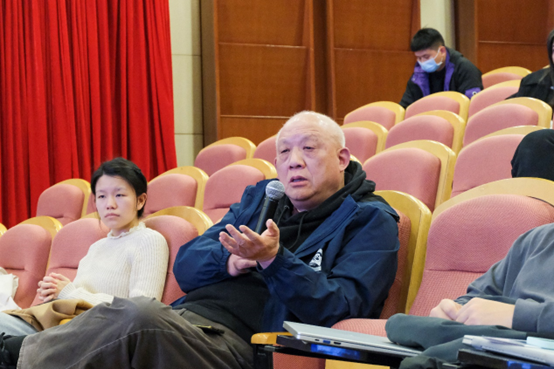
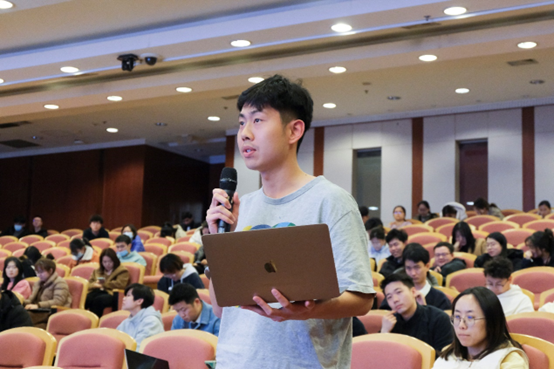
During the interactive session, the audience enthusiastically asked questions, and Professor Michael Karin addressed inquiries regarding the length and sequence specificity of oxidized mitochondrial DNA, while Professor Michael Snyder responded to questions about exploring individual differences in circadian rhythms based on portable health monitoring devices.
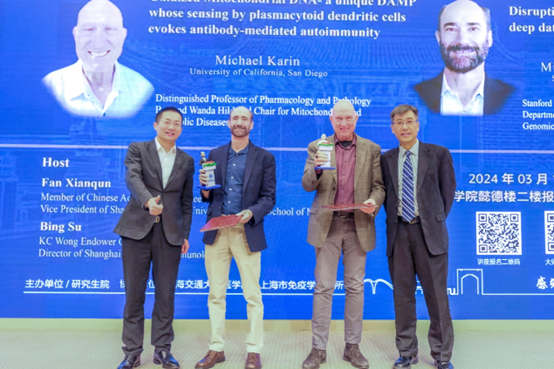
At the end of the lecture, Professor Su Bing presented commemorative gifts to the two academic masters on behalf of Shanghai Jiao Tong University, expressing profound respect and heartfelt gratitude to them for sharing their academic insights and cutting-edge information with the faculty and students.

